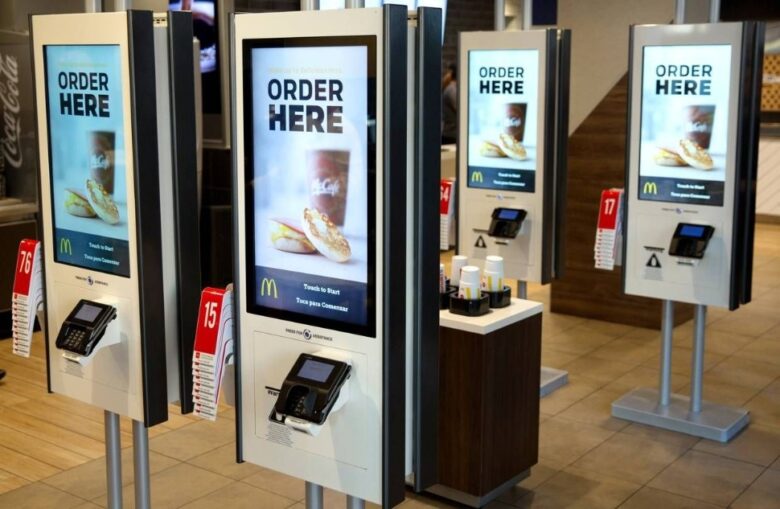The retail industry is undergoing a radical transformation in response to the digital age. In a world where online shopping has become the norm, brick-and-mortar stores have had to find new ways to attract customers and remain competitive with e-commerce giants. Incorporating smart technology and digital solutions has emerged as one of the critical ways retail is adapting to these changes.
Retail Kiosks
One way in which retail has adapted is by turning to retail kiosks. A retail kiosk is a self-service terminal that offers customers the convenience of browsing and purchasing products independently. These kiosks, manufactured by GRUBBRR, are interactive touchscreens and can be found in shopping malls, airports, and other high-traffic areas. GRUBBRR retail kiosks offer several benefits for both retailers and customers.
For retailers, they provide a cost-effective way to reach customers in areas where opening a full-fledged store may be challenging. They also offer retailers the ability to gather valuable customer data by tracking customer interactions with the kiosk. This data can inform business decisions, improve the customer experience, and drive sales.
Retail kiosks offer customers a convenient shopping experience, eliminating the need to wait in line or interact with sales associates. They also provide customers access to a broader range of products, as the kiosk can provide information about items not currently available in stores. GRUBBRR is a leader in digital retail solutions, offering several technologies and software essential for thriving retail stores in the digital age.
Virtual Reality
Another trend in the retail industry is the use of augmented reality (AR) and virtual reality (VR) in the shopping experience. AR and VR allow customers to try on clothes or test products in a virtual environment, providing a more immersive and interactive shopping experience. This can significantly enhance the customer experience, allowing them to visualize how a product will look or feel before making a purchase. Furthermore, AR and VR can reduce product returns, as customers can better understand what they are purchasing before making a final decision.
Artificial Intelligence
Artificial intelligence (AI) and machine learning are also making their way into the retail industry. These technologies are used to personalize the shopping experience and make recommendations based on customer behavior and preferences. For example, an AI-powered chatbot can provide customers with product recommendations based on their purchase history or offer personalized discounts based on their spending habits. These technologies can also help retailers make sense of vast customer data and use this information to improve the shopping experience.
Online Solutions
In addition to these technological advancements, retailers also leverage online solutions to reach a broader customer base. E-commerce has become a significant player in the retail industry, and brick-and-mortar stores are responding by incorporating online sales channels into their business models. Many retailers now offer buy online, pick up in-store (BOPIS) options, allowing customers to purchase products online and pick them up at a physical store location. This provides customers with a convenient shopping experience and helps retailers drive foot traffic to their physical stores. Retailers are also investing in mobile-optimized websites and apps, as mobile commerce allows them to reach customers wherever they are and provides a seamless shopping experience that is accessible and convenient.
Challenges Facing Digitalization
However, it is essential to note that the shift towards technology and digital solutions has its challenges. For example, retailers may need to invest in new hardware and software and provide training for employees on how to use these tools effectively. Retailers must also ensure that their digital systems are secure and protect customer data from potential cyber threats. Finally, retailers must also be mindful of balancing technology with human interaction, as customers still value the personal touch of shopping in a physical store.
In conclusion, the retail industry is undergoing a significant transformation in response to the digital age. By embracing technology and digital solutions, retail stores can reach more customers, provide a more personalized shopping experience, and remain competitive in the rapidly evolving retail landscape. Retailers must continue to find new ways to stay ahead of the curve and adapt to changing customer behaviors and technology trends to thrive in the digital age.
Article by Born Realist






